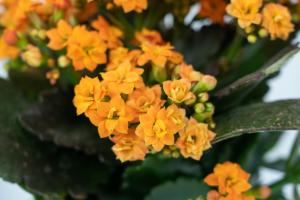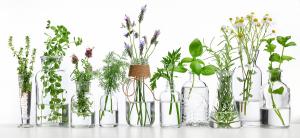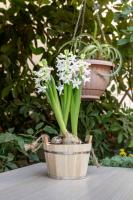Is Rain Water Good for House Plants?
Rain water is a free and sustainable source of water for plants. It is also known to have some benefits compared to tap water, which is often treated with chemicals like chlorine and fluoride. Many people wonder if rain water is good for house plants. In this article, we will explore the advantages and disadvantages of using rain water for your indoor plants.
Advantages of Using Rain Water for House Plants
Rain water is often more natural and free of chemicals compared to tap water. It is also usually at a neutral pH level, which makes it more suitable for many types of plants. Additionally, rain water is often rich in minerals and nutrients that are beneficial for plant growth, including nitrogen, potassium, and phosphorus. Since rain water is softer than tap water, it can also help prevent mineral buildup in the soil, which can affect how well plants absorb water and nutrients.
Disadvantages of Using Rain Water for House Plants
While rain water has many benefits, it is not always the best option for indoor plants. One of the main disadvantages of rain water is that it can be contaminated with pollutants, including chemicals from industrial or agricultural activities. This pollution can affect the quality of the water and the health of your plants. Additionally, rain water can sometimes be acidic, especially in areas with high levels of air pollution. This acidity can affect the pH level of the soil and make it harder for plants to absorb nutrients.
How to Use Rain Water for House Plants
If you want to use rain water for your indoor plants, it is important to collect it properly and filter it if necessary. One way to collect rain water is by using a rain barrel or a plastic container. Make sure the container is clean and free of any chemicals or pollutants. To filter the water, you can use a fine mesh screen or a cheesecloth to remove any debris like leaves or twigs. You can also use a water filter to remove any pollutants or chemicals from the water. When watering your plants, make sure to use room temperature or slightly warm water to avoid shocking the roots.
Conclusion
In conclusion, rain water can be a good option for house plants under the right conditions. It is often free of chemicals and rich in minerals and nutrients that can benefit plant growth. However, it is important to be aware of the potential risks, including pollution and acidity, and to properly collect and filter the water before use. If you are unsure about the quality of your rain water, it may be best to stick to using tap water or a combination of both sources.

 how many times do yo...
how many times do yo... how many planted tre...
how many planted tre... how many pine trees ...
how many pine trees ... how many pecan trees...
how many pecan trees... how many plants comp...
how many plants comp... how many plants can ...
how many plants can ... how many plants and ...
how many plants and ... how many pepper plan...
how many pepper plan...































